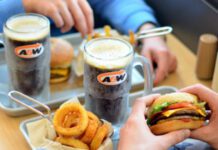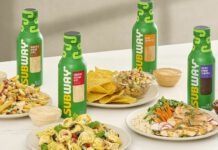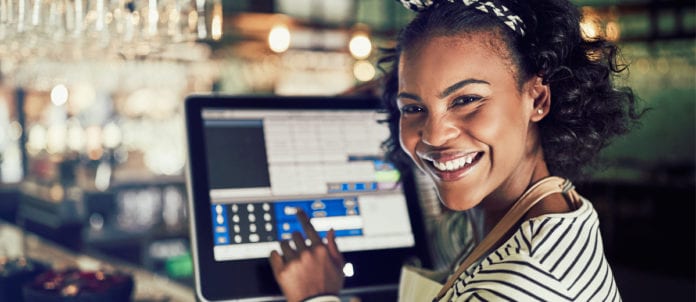In an industry with notoriously tight margins, the COVID-19 pandemic put the squeeze on many restaurants, bars and other small businesses around the world. Now more than ever, saving money, becoming more efficient and maximizing profits are imperative.
But how do foodservice operators run a tighter ship? As there’s only so much that can be done with people alone, technology is quickly becoming the industry’s greatest ally. Behind the bar, technology has become a trusted partner during the pandemic. Whether for streamlining online ordering or maximizing in-house workflow, restaurants and bars are becoming more reliant on technology solutions to keep them above the line.
One of the largest contributors to lost revenue is waste, according to George Bortolato, director of Sales and marketing at Hamilton, Ont.-based Barventory, a fluid inventory-management company for beer, wine and spirits within the hospitality sector.
“Typically, bars can have up to 20-per-cent alcohol waste in the system and with new technology, we can better help to pinpoint that,” says Bortolato.
Mike Peters, a project manager at Barventory, says he’s noticed some new foodservice trends over the course of the pandemic.
“It’s very difficult to control inventory in a restaurant or hospitality, environment… a lot of the operations are 18 hours a day,” he says, adding this almost around-the clock operation leaves the door open to miscommunication and errors in passing over between shifts that can last for about 10 to12 hours.
Peters says that as time has progressed and technology has grown, record keeping for bars and restaurants has become easier — and with a lot less paperwork.
“We are able to collect, compile and analyze data so much faster now,” says Peters.
Traditionally, bars and restaurants would have to scale and weigh each bottle individually to account for what was poured compared to what was sold. Peters says Barventory has a new product, which allows for operators to continuously have its products scaled and weights measured, drastically reducing manual labour.
“Our scale technology is wireless and uses very low power; just place a scale underneath a keg anywhere there is Internet and we can record the data, very quickly through the cloud,” he says.
The company is in the prototype stage for a miniature version of its keg-scale technology. The coaster-sized scales — designed to make liquor inventory easier — have RFID technology incorporated.
“The RFID tag pairs with a bar code and you can scatter 20 or so of these coasters around your service bar. Every time the bottle is listed, the coaster re-zeroes and, after you free pour, the coaster recognizes which bottle it is and how much liquid has been poured,” says Peters.
Dave McCullough is a managing partner at Free Pour Beverage Management, a Mississauga, Ont.-based company whose system is meant to streamline front-of-house analytics, while also keeping bartenders accountable.
“Half of our customers used to buy the system because they thought the bartenders were stealing; that is not that case anymore. More so, they want accuracy, simplicity and integration with other software they are using. We actually stress that our tech should help to reward bartenders for good performance and encourage better performance from them,” says McCullough.
Applications of this style of technology can not only be used to catch over-pours or spillage, but also to train new and incumbent bartenders to make sure the correct amount of liquor and beer is being used per drink.
With the way matters have unfolded over the past 15 months, bars and restaurants will have to do everything in their power to keep costs down — and that starts with proper training of staff and reduction of waste.
Written by Nick Laws


















